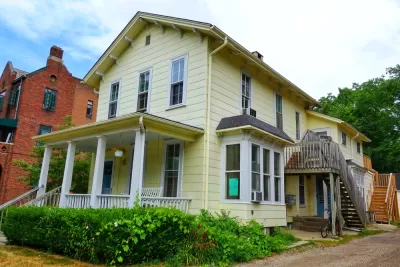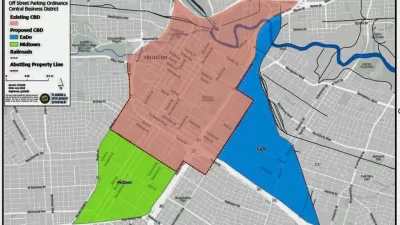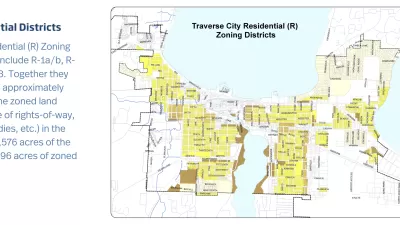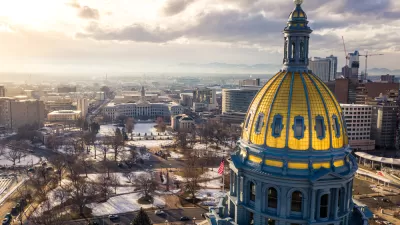After legalizing accessory dwelling units in 2016, the city of Ann Arbor hasn't added many accessory dwelling units. Some regulations designed to limit the number of ADUs developed have made the building type impossibly cost prohibitive.

"[The] Ann Arbor city council is considering ways to make it easier for homeowners to create accessory dwelling units on their property," reports Lauren Slagter.
After achieving very little development of accessory dwelling units (ADUs) since approving an ordinance to allow the construction and rental of accessory dwelling units in 2016, the Ann Arbor City Council is ready to retool the ordinance to encourage more development.
"The ordinance included restrictions intended to prevent the proliferation of ADUs across the city, and now city council thinks the restrictions may have worked too well," according to Slagter.
Most of the lack of ADU development in the city is credited to the high cost of building the units. According to Slagter, the city already dropped a previous requirement for every detached ADU to have its own water and sewer hookup, separate from the main house. Removing that requirement dropped the price of constructing an ADU by $20,000 to $30,000. Possible refinements of the city's ADU ordinance include removing maximum size regulations; removing minimum lot size requirements; allowing ADUs on lots with single-famly zones, regardless of zoning; and more.
FULL STORY: Ann Arbor looks to make it easier to build accessory apartments

Study: Maui’s Plan to Convert Vacation Rentals to Long-Term Housing Could Cause Nearly $1 Billion Economic Loss
The plan would reduce visitor accommodation by 25,% resulting in 1,900 jobs lost.

North Texas Transit Leaders Tout Benefits of TOD for Growing Region
At a summit focused on transit-oriented development, policymakers discussed how North Texas’ expanded light rail system can serve as a tool for economic growth.

Using Old Oil and Gas Wells for Green Energy Storage
Penn State researchers have found that repurposing abandoned oil and gas wells for geothermal-assisted compressed-air energy storage can boost efficiency, reduce environmental risks, and support clean energy and job transitions.

Private Donations Propel Early Restoration of Palisades Playground
Los Angeles has secured over $1.3 million in private funding to restore the Pacific Palisades playground months ahead of schedule, creating a modern, accessible space that supports community healing after recent wildfires.

From Blight to Benefit: Early Results From California’s Equitable Cleanup Program
The Equitable Community Revitalization Grant (ECRG) program is reshaping brownfield redevelopment by prioritizing projects in low-income and environmental justice communities, emphasizing equity, transparency, and community benefits.

Planting Relief: Tackling Las Vegas Heat One Tree at a Time
Nevada Plants, a Las Vegas-based nonprofit, is combating the city’s extreme urban heat by giving away trees to residents in underserved neighborhoods, promoting shade, sustainability, and community health.
Urban Design for Planners 1: Software Tools
This six-course series explores essential urban design concepts using open source software and equips planners with the tools they need to participate fully in the urban design process.
Planning for Universal Design
Learn the tools for implementing Universal Design in planning regulations.
Ascent Environmental
Borough of Carlisle
Institute for Housing and Urban Development Studies (IHS)
City of Grandview
Harvard GSD Executive Education
Toledo-Lucas County Plan Commissions
Salt Lake City
NYU Wagner Graduate School of Public Service





























